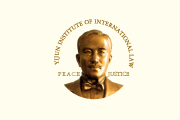CWR > Volume 5(2); 2019 > Articles
Research Paper
Published online: September 1, 2019
DOI: http://dx.doi.org/10.14330/cwr.2019.5.2.04
China’s Anti-Corruption Legislation: A Review of the Supervision Law from the Perspective of Human Rights Protection
Yuan Chufeng
East China University of Technology
East China University of Technology, 418 Guanglan Avenue, Changbei Jingkai District, Nanchang, P.R. China 330013.
Corresponding Author: yuanchufeng@163.com
ⓒ Copyright YIJUN Institute of International Law. This is an Open Access article distributed under the terms of the Creative Commons Attribution Non-Commercial License (http://creativecommons.org/licenses/by-nc/3.0/) which permits unrestricted non-commercial use, distribution, and reproduction in any medium, provided the original work is properly cited.
Abstract
China’s Supervision Law is the legislation that governs China’s leading and fundamental approach to anti-corruption. Its main content includes the objective, guiding ideology, principle and leadership system of supervision work, the authority, formation and duties of the supervision committee, the supervision procedures, and the supervision of the supervisory organizations and supervisors. The Supervision Law embodies the characteristics of a combination of party rules and national laws. This power structure is completely different from the separation of powers in Western countries: it does not control power by checks and balances and civil rights. This raises concerns about “who will supervise the power of the Commission or a higher level of power,” “human rights protection” and “procedural issues.” The Supervision Law not only means significant changes in China’s anti-corruption legislation, but also those in China’s governance style, which will have a profound impact on China’s future political and legal aspects.
Keywords : Anti-corruption, Supervision Law, Supervisory Committee, Dual Duties, Two Regulations, Criminal Procedure Law





